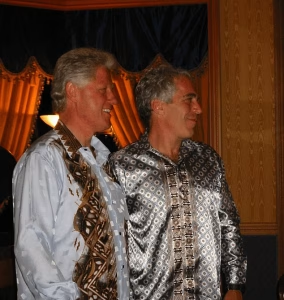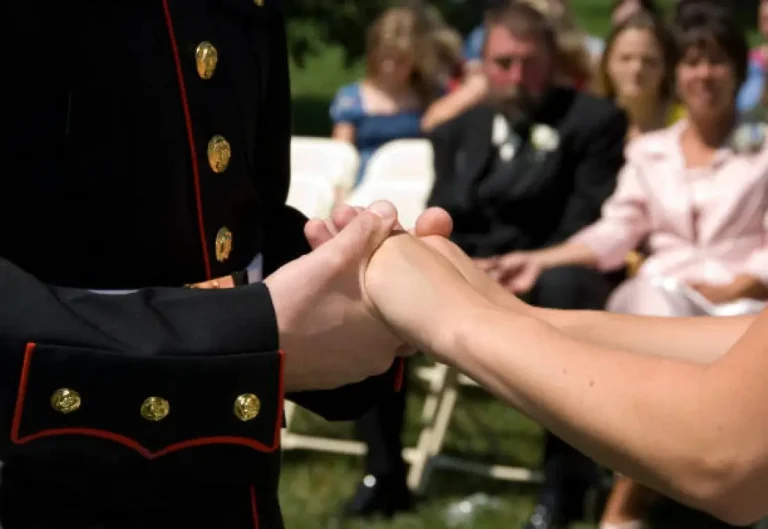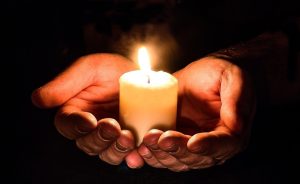Standing on my parents’ front porch after three years of silence, I never imagined I’d be back. The last meaningful conversation we’d had was at my grandmother’s funeral, and before that, the devastating day when I was eighteen and they chose my sister Lisa over me—again. The memory still stings: watching them hand over my college fund to pay for Lisa’s wedding while telling me I could “figure out” my education with student loans.
My name is Bella, and this is the story of how I learned that sometimes the most loving thing you can do for your child is to walk away from family—and how that decision ultimately saved us both.
The phone call that brought me back to their doorstep came on a Tuesday evening. My mother’s voice was strained, desperate in a way I’d never heard before. “Bella, we need to talk. It’s urgent.” Against my better judgment, something in her tone made me agree to visit.
Walking into their living room felt like stepping back in time, but not in a nostalgic way. The expensive furniture they’d purchased for Lisa’s wedding—the same wedding funded by my stolen future—now looked worn and outdated. My mother collapsed into tears the moment I sat down, her sobs shaking her entire body.
“We’re going to lose the house,” my father finally managed to say, his eyes fixed on the carpet he couldn’t bring himself to meet my gaze.
I should have been surprised, but I wasn’t. There was always drama with Lisa, always another crisis that somehow became my parents’ responsibility to solve. This time, they’d used their house as collateral for a business loan for Lisa’s husband Tom. When his venture inevitably failed, Lisa and Tom simply stopped making payments, leaving my parents holding a debt they couldn’t manage on their fixed income.
“So you called me,” I said, my voice steady despite the storm of emotions brewing inside. “The daughter you abandoned, whose education you sacrificed for Lisa’s perfect wedding, to bail you out of another mess she created.”
My mother’s tears intensified. “We know you’re doing well with the rental income from your apartment. We wouldn’t ask if we weren’t desperate.”
The rental income. They’d done their homework, clearly keeping tabs on my life from a distance while maintaining their silence. It was both invasive and telling—they knew enough about my success to want a piece of it, but not enough to have been part of the journey.
I heard myself say, “I’ll think about it,” and was as shocked as they were by the words. But as I drove home to pick up Emma from her after-school program, I realized why I’d hesitated to say no immediately.
Emma was nine then, bright-eyed and curious about everything. When she saw my tear-stained face, she asked with the directness only children possess, “Why are you crying, Mommy?”
“I saw your grandparents today,” I told her, watching as her eyes lit up with wonder. She’d only ever known them through a handful of old photographs I’d kept hidden in a shoebox. In that moment, seeing her excitement about the possibility of family, I made a decision that would change everything.
Maybe I was being foolish, but Emma deserved a chance to know her grandparents. More than that, maybe this was an opportunity to heal old wounds and create the family dynamic I’d always wished for. The optimistic part of me wondered if becoming grandparents might have softened my parents, made them see the value in unconditional love.
The reunion a week later was awkward but promising. My mother cried—happy tears this time—and my father, though stiff and uncertain, genuinely smiled when Emma ran up to hug them both. For the first time in decades, I saw something resembling joy in their eyes that wasn’t connected to Lisa.
That evening, I made my proposition over the phone. “I’ll help with the loan payments and move in with Emma. The rental income from my apartment will cover the mortgage Lisa defaulted on, and I’ll contribute to household bills. But we need clear boundaries this time.”
The first few months were surprisingly good. I invested in the house, purchasing new appliances that actually worked—a modern refrigerator, a dishwasher that didn’t require my father to spend hours hand-washing dishes, aggravating his back problems. These weren’t just purchases; they were investments in making a real home for Emma and me.
My mother seemed genuinely happy to have us there, picking Emma up from school and helping with homework. Dad discovered he had a natural teaching ability, patiently showing Emma how to play chess. Their weekly matches became a beloved tradition, and I’d often find them hunched over the board, Emma’s face scrunched in concentration while Dad offered gentle guidance.
With reliable childcare and a stable home environment, I was able to take on more responsibilities at work, which led to a promotion and better pay. Everything seemed to be falling into place. Emma was thriving, my parents were healthier and happier, and for the first time in years, I felt like we were building something real together.
But even during those good times, warning signs appeared like cracks in a foundation. I’d catch my mother taking hushed phone calls that left her red-eyed and defensive. Bank notifications on her phone showed money transfers to Lisa’s account—money she claimed not to have when it came to contributing to household expenses.
“She’s going through a rough patch,” Mom would say when I confronted her about these payments.
“Mom, I’m covering all the bills and the loan payments Lisa defaulted on. How is it fair that you’re sending her money you don’t actually have?”
Her response was always the same: “You don’t understand,” followed by stony silence and the subject being permanently closed.
Three years passed in this delicate balance. Emma grew from a curious nine-year-old into a confident twelve-year-old who knew she was loved and valued. She excelled in school, made friends easily, and had a secure foundation I’d never experienced at her age. I thought we’d finally built something lasting.
Then came the Tuesday that shattered everything.
I’d been in Denver for what should have been a three-day business trip, but the client meetings went better than expected, and I managed to catch an early flight home. I was excited to surprise Emma, maybe take her out for dinner at her favorite restaurant. Instead, I walked into chaos.
The shouting was audible from the driveway. Opening the front door, I stepped into a scene that transported me back twenty years—Lisa, sprawled across the couch I’d just had reupholstered, looking at her phone with bored indifference. Beside her were two children I recognized only from social media photos, and suitcases scattered across the living room like land mines.
“Oh,” Lisa said without looking up, “look who’s here.”
My parents sat frozen in their chairs, a tableau of guilt and resignation. They couldn’t meet my eyes.
“I left Tom,” Lisa announced with the casual tone of someone commenting on the weather. “Total loser. We’ll be staying here now.”
The word “we’ll” hung in the air like a threat. Not “can we” or “would it be possible”—a statement of fact, as if my opinion or Emma’s well-being were irrelevant details.
“You’ll be staying here?” I repeated slowly, feeling the familiar ice of old resentments crystalizing in my chest. “In the house where I pay all the bills and cover the loan you defaulted on?”
Lisa’s face flushed with the righteous indignation of someone who’d never been held accountable for anything. “Oh, here we go. Miss Perfect with all her money. Some of us have real problems, Bella.”
Real problems. Like the problem of never having to face consequences, or the problem of parents who enabled every poor decision with endless bailouts and excuses.
“Girls, please,” Mom interrupted with the same weak mediation she’d used throughout our childhood. “We’re family. We need to stick together.”
I laughed, a harsh sound even to my own ears. “Funny how ‘family’ only becomes important when you need something from me.”
History Repeats
The next few weeks were a masterclass in déjà vu. Lisa’s children ran wild through the house, breaking things and leaving messes with the confidence of children who’d never heard the word “no.” But what broke my heart was watching Emma slowly disappear, just as I had at her age.
My parents, who had spent three years doting on Emma, suddenly had no time for her. When she tried to show my mother an A+ on her math test, Mom waved her away, too busy dealing with Lisa’s son’s latest tantrum. When Emma asked Dad for their weekly chess match, he was “too tired”—thirty minutes before spending two hours playing catch with Lisa’s daughter in the backyard.
I watched my confident, happy daughter begin to doubt herself, to make herself smaller, to compete for scraps of attention from grandparents who had loved her unconditionally just weeks before. Emma was learning the lesson I’d been taught at eighteen: love in this family was conditional, finite, and Lisa always got the lion’s share.
The breaking point came when I had to travel to Seattle for an emergency client meeting. It was supposed to be five days—a routine trip that I’d done dozens of times since we’d moved in. Emma assured me she’d be fine, and we planned to video chat every evening like we always did when I traveled.
Four days into the trip, at 9 PM Seattle time, my phone rang with Emma’s picture on the screen. The sound that came through was unlike anything I’d ever heard from my typically composed daughter—a broken, terrified sobbing that made my blood run cold.
“Mom?” Her voice was barely audible between sobs. “Mom, I’m outside. Aunt Lisa kicked me out. She said I was in the way. I don’t know what to do.”
Time stopped. My twelve-year-old daughter was on the street, alone, at night, because my sister had decided she was inconvenient. All the years of trying to rebuild, all the hope I’d invested in the idea that family could heal and grow—gone in an instant.
With shaking hands, I called my friend Sarah, who lived nearby, begging her to pick up Emma immediately. Then, with ice-cold clarity, I called Lisa.
She answered on the fifth ring, sounding irritated rather than concerned. “Oh, did the little princess call you to tattle?” she sneered, as if my child’s safety was a game.
I hung up without a word and immediately called my parents. When my mother answered, I could barely control the fury in my voice. “Your granddaughter is on the street. Tell me you didn’t watch Lisa throw a twelve-year-old child out of the house.”
There was a long pause. When my mother finally spoke, her voice was hard, unfamiliar, stripped of any pretense of grandmotherly love. “Maybe it’s for the best, Bella. You and Emma don’t really fit here anymore.”
In that moment, the last illusion shattered completely. They had chosen Lisa again, just as they always did. But this time, they hadn’t just chosen her over me—they’d chosen her over Emma. They’d stood by and watched a grown woman abuse a child, then endorsed it.
“You’re right, Mom,” I said with deadly quiet. “We don’t fit there. We never did.”
I hung up and booked the first flight home, my hands surprisingly steady as I made arrangements. There was no anger anymore, no hurt—just a crystalline clarity about what needed to happen next. This was the end, and it was time to act accordingly.
When I finally reached Sarah’s house at 3 AM, Emma was asleep on the couch, tear tracks still visible on her cheeks. Sarah, who had become like a sister to me over the years, told me what had really been happening. For weeks, Lisa had been treating Emma like hired help, demanding she clean up after Lisa’s children, fetch things, and stay out of the way when adults were talking. When Emma finally refused to clean up a mess so she could study for a test, Lisa had physically pushed her out the front door and locked it behind her.
My parents had watched it happen. They had done nothing.
The next morning, after making sure Emma had eaten breakfast and felt safe, I made one final trip to what had never really been our home. The moving crew I’d hired was already waiting when we arrived.
“Bella, we didn’t expect you back so soon,” my mother said, confusion and false cheer in her voice as she opened the door.
I walked past her without acknowledgment, Emma’s hand firmly in mine. “Take everything I purchased,” I instructed the movers, my voice businesslike and efficient. “The refrigerator, the washing machine, the couch, the television, the dining room set.”
I moved through the house methodically, identifying every item I had bought over the past three years. It was extensive—I had essentially furnished and equipped the entire home.
“You can’t do this!” My mother’s voice rose to near-hysteria. “We need those things!”
“Actually, I can,” I replied, pulling out my folder of receipts and proof of purchase. “Everything I’m taking, I bought. It belongs to me.”
My father arrived home while the movers were loading the truck. “Bella,” he began, his voice pleading, “surely we can work this out. Emma’s upset, but—”
“Don’t.” The word came out harder than I intended, but I didn’t soften it. “You watched your daughter throw your granddaughter onto the street at night. You chose Lisa over me twenty years ago, and now you’ve chosen her over Emma. There’s nothing to work out. We’re done.”
“But the loan payments,” my mother said, desperation creeping into her voice. “The bills. You can’t just leave us like this.”
I turned to face both of them one final time, my voice devoid of any emotion. “You’ll figure it out the same way I had to figure out college funding at eighteen. Consider this my final payment for everything—for the childhood I never had, for the college fund you stole, and for the three years I spent believing family could change. We’re even now.”
The phone calls started immediately—angry accusations, tearful manipulations, desperate bargaining. I didn’t answer any of them. Emma, wise beyond her twelve years, asked one evening why I refused to take their calls.
“Because we don’t owe them anything,” I told her as we shared pizza on our apartment balcony. “Sometimes the best response is no response at all.”
Our apartment, which had felt cramped when we first moved back, now felt spacious and peaceful. The weight of their expectations, their drama, their endless needs—all of it was gone. Emma’s grades, which had started slipping during those final weeks in their house, immediately improved. She joined the school chess club, making friends who appreciated her intelligence. She was blooming in ways I hadn’t seen in months.
Through mutual friends, I heard updates I didn’t ask for. The bank was threatening foreclosure. Lisa still wasn’t working, having moved on to another boyfriend with money to burn. My parents had been forced to sell the house and move into a small apartment. I felt no satisfaction in their struggles, but no guilt either. They had made their choices, just as I had made mine.
The money I had been spending on their bills and loan payments went into Emma’s college fund and our experiences together. We took weekend trips to museums and national parks. Emma learned photography and started a small side business taking portraits of her friends. She was discovering her own interests and talents without having to compete for attention or approval.
Nearly a year after we’d left, Emma came into the kitchen one morning and asked, “Mom, are you happy now?”
I stopped what I was doing and really considered the question. Was I happy that I’d walked away from family? Was I happy that I’d finally protected my daughter the way no one had ever protected me? Was I happy that we were building something real and healthy together?
“Yes,” I said finally, surprised by how true it felt. “I am. Are you?”
She smiled—bright, unworried, completely secure. “Yeah. I like it being just us.”
That afternoon, I deleted their numbers from my phone. It felt like the final piece of moving forward.
Six years passed in what I can only describe as peace. Our small family of two became something I’d never experienced before—stable, loving, predictable in the best ways. Emma grew into a confident, articulate young woman who knew her own worth. She never had to fight for love or attention; it was given freely and consistently.
The rental income, combined with my career advancement, had rebuilt Emma’s college fund into something substantial. She was accepted to her dream university’s architecture program, an achievement we celebrated with a trip to Italy to see the buildings she’d studied in books for years.
One evening, as we packed the last of her boxes for her dorm room, Emma found an old photo album with pictures from our three years at my parents’ house. There were photos of her playing chess with my father, baking cookies with my mother—moments of genuine connection before everything fell apart.
“Mom,” she asked thoughtfully, “do you ever regret it? Cutting them off completely?”
I sat down beside her on the floor, surrounded by the evidence of her bright future. “I don’t regret leaving,” I said honestly. “That decision saved us both. But am I sad about it sometimes? Yes. I’m sad for the family we should have had, for the grandparents who could have loved you consistently instead of conditionally.”
“I miss Grandpa sometimes too,” she admitted quietly. “But I don’t miss feeling invisible.”
“And that’s exactly why we had to leave,” I replied. “So you would never have to learn to be invisible like I did.”
Our conversation was interrupted by a call from an unknown number. Something made me answer instead of letting it go to voicemail.
“Is this Bella?” an unfamiliar voice asked. “This is Oak Ridge Hospital. I’m very sorry to inform you that your father, Richard, passed away an hour ago from a sudden heart attack.”
The world shifted. My father—gone. A complicated grief washed over me, mixed with shock and an unwelcome sense of guilt I hadn’t expected to feel.
“Your mother is here,” the nurse continued. “She’s asking for you.”
Lisa called for the first time in six years, her usual arrogance replaced with panic about funeral costs and who would take care of our mother. Our conversation was brief and transactional. I agreed to pay for the funeral—not out of love, but out of duty to the man who had taught Emma to play chess, even if he couldn’t stand up to the dysfunction around him.
Emma, who had delayed her move to college by a week, asked if I was going to attend the service.
“I don’t know if I can face them,” I admitted.
“Maybe you don’t go for them,” she said with the wisdom that had always amazed me. “Maybe you go for yourself. To close the book properly. Or maybe you go for the man who used to play chess with me, before everything else got in the way.”
She was right. I owed my mother and Lisa nothing. But perhaps I owed myself a proper ending, and I owed the complicated man my father had been a final goodbye.
I went alone. The funeral home was small and stuffy, filled with people sharing revised memories of my father’s generosity and humor. No one mentioned the family he’d helped tear apart or the granddaughter he’d failed to protect. It was sanitized history, crafted to maintain appearances even in death.
My mother looked a decade older, frail and diminished. When she saw me, hope flickered in her eyes like a candle in wind.
“Bella,” she whispered, grabbing my hand. “I knew you’d come. Your father would be so happy.”
I gently pulled away. “I came to say goodbye, Mom. Nothing more.”
After the service, at the cemetery, she approached me one final time with Lisa hovering behind her like a shadow.
“Now that your father is gone,” my mother began, “maybe things can go back to how they were. You and Emma could come home. Lisa and I need you.”
I looked at them—two women still trapped in their cycle of dysfunction, still looking for someone else to rescue them instead of taking responsibility for their own choices.
“Nothing can go back to how it was, Mom,” I said gently but firmly. “And we’re not coming home. Our home is together, Emma and me.”
“But we’re family!” Lisa interjected with the desperation of someone whose safety net was disappearing.
“A real family would never throw a twelve-year-old child out onto the street at night,” I replied, my voice steady and cold. “A real family wouldn’t steal their daughter’s future to pay for a wedding. You stopped being my family the day you chose appearances over love, and Lisa over everyone else. That was your choice, not mine.”
I placed a single white rose on my father’s casket, then turned and walked away without looking back. As I drove out of town for what I knew would be the last time, I felt a profound sense of peace. The final chapter was closed.
Emma started college that fall, confident and prepared for whatever challenges awaited her. Her college fund was full, her future secure. More importantly, she knew she was loved unconditionally, that she had value beyond what she could provide for others, and that real family means protecting and supporting each other, not using each other.
I had broken a generational cycle of dysfunction, manipulation, and conditional love. It hadn’t been easy, and it hadn’t been pretty. But it had been necessary. Sometimes the most loving thing a parent can do is walk away from their own family of origin to protect their child from inheriting the same wounds.
Emma and I might be a small family, but we’re a real one. And sometimes, that’s all the family you need.

Emily Johnson is a critically acclaimed essayist and novelist known for her thought-provoking works centered on feminism, women’s rights, and modern relationships. Born and raised in Portland, Oregon, Emily grew up with a deep love of books, often spending her afternoons at her local library. She went on to study literature and gender studies at UCLA, where she became deeply involved in activism and began publishing essays in campus journals. Her debut essay collection, Voices Unbound, struck a chord with readers nationwide for its fearless exploration of gender dynamics, identity, and the challenges faced by women in contemporary society. Emily later transitioned into fiction, writing novels that balance compelling storytelling with social commentary. Her protagonists are often strong, multidimensional women navigating love, ambition, and the struggles of everyday life, making her a favorite among readers who crave authentic, relatable narratives. Critics praise her ability to merge personal intimacy with universal themes. Off the page, Emily is an advocate for women in publishing, leading workshops that encourage young female writers to embrace their voices. She lives in Seattle with her partner and two rescue cats, where she continues to write, teach, and inspire a new generation of storytellers.









